JCPOA, US in spotlight as Rouhani meets Europe leaders
Meeting with European leaders on the sidelines of the UN General Assembly, Iran’s president has urged the international community to help preserve the landmark 2015 nuclear deal by withstanding US pressure and unilateralism.
On Tuesday, President Hassan Rouhani held separate meetings with the French, British, Belgian, and Norwegian leaders in New York, the seat of the Assembly.
Washington’s unilateral withdrawal from the Joint Comprehensive Plan of Action (JCPOA), was “an illegal action and against regulations,” Rouhani told his French counterpart, Emanuel Macron.
The Iranian chief executive highlighted the importance of international endeavors to confront “unilateralism” and preserve the agreement.
Macron, likewise, laid emphasis on the need for the agreement to be preserved, and said that his country was trying to make that happen.
Meeting with UK Prime Minister Theresa May, President Rouhani said reports by the International Atomic Energy Agency (IAEA) had confirmed Iran's commitment to its obligations under the JCPOA.

Pointing to the US non-commitment, he said, “In multilateral agreements, there needs to be a balance among the involved parties in their commitments undertaken [as part of the deals].”
May, for her part, emphasized the need for the JCPOA to continue to stand and called for mutual cooperation between Tehran and London towards that purpose.
‘Europe must let deeds follow its words’
In a separate meeting with Belgium’s Premier Charles Michel, Rouhani hailed the “strong” political position of Europe on Washington’s withdrawal from the Iran deal.
“But we demand that the European Union take practical measures to preserve the JCPOA,” the president asserted.
Michel said Brussels favored “multilateralism,” and would not spare any effort to help save the deal. He said since the end of World War II, it was the first time that Europe had united with Russia and China to save an agreement.

Despite the US political and economic pressure, the European Union is resolved to help develop a new financial mechanism to reinforce economic and commercial relations with Iran, the official said, noting that Europe was seeking a substitute payment system to ensure various enterprises that their interests will be preserved if they invest in Iran.
At a meeting with Norway’s Prime Minister Erna Solberg, Rouhani said the United Nations Security Council Resolution 2231 stipulates that all countries have to abide by the terms of the JCPOA.
“It is of utmost importance that the world does not remain indifferent to the US contravention of the resolution,” Rouhani said.
“Iran is fully committed to its obligations, but there are two sides to every agreement, and we remain in any agreement as long as it meets our interests,” Rouhani added.
Washington left the deal, signed by the previous US administration, in May, and said it would reintroduce the sanctions that were lifted on the back of the accord.
It has also been warning third countries that they would face “secondary sanctions” if they maintain business ties with Iran.
Solberg said the preservation of the JCPOA was “very important for us in the context of improvement of relations. Unfortunately, however, political issues have damaged this good agreement.”

Norway, she said, has faith in the agency and the international body’s reports concerning Iran’s nuclear program, praising Iran’s compliance with the JCPOA.
Terrorism
During the meeting with Rouhani, Macron expressed condolences over the recent terror attack against a military parade in the southern Iranian city of Ahvaz that killed 25 people.
Rouhani called terrorism a threat facing the entire international community, and urged enhanced cooperation between Iran and France in the fight against terrorism.
The Iranian president also told May that all countries have to adopt decisive and uniform positions on terrorism in today’s world, and strengthen their cooperation towards eliminating the scourge.
He asserted that Iran’s military power serves to defend the nation and fight terrorism, noting, “Our approach constitutes the reduction of tension in the region and the world, something which should be noted by all.”
May expressed her condolences over the Ahvaz incident too, and said London condemns terrorism in all its forms.
Yemen crisis
Elsewhere in his remarks to the British premier, President Rouhani said that Yemen’s crisis could only be solved through the cessation of warfare and intra-Yemeni talks.
“All countries should exert effort to stop the bloodshed and bombardments in Yemen, and enable the transfer of humanitarian assistance to civilians," he noted.
May reaffirmed Rouhani’s position that the crisis was only to be solved through political solutions, and called for collective efforts to provide the violence-hit Yemeni people with humanitarian aid.
Israel kills 5 more paramedics in southern Lebanon: Health ministry
Iran to launch ‘new, advanced’ centrifuges in response to IAEA resolution: AEOI
Yemen fires hypersonic missile at Israeli airbase
VIDEO | New Delhi chokes under toxic smog as air quality remains at hazardous levels
VIDEO | Press TV's news headlines
VIDEO | ICC's arrest warrant for Netanyahu to worry Western politicians: Former British diplomat
Iranians protest against Israel after Netanyahu ICC warrant
Germany undecided on complying with ICC arrest warrants for Israeli war criminals



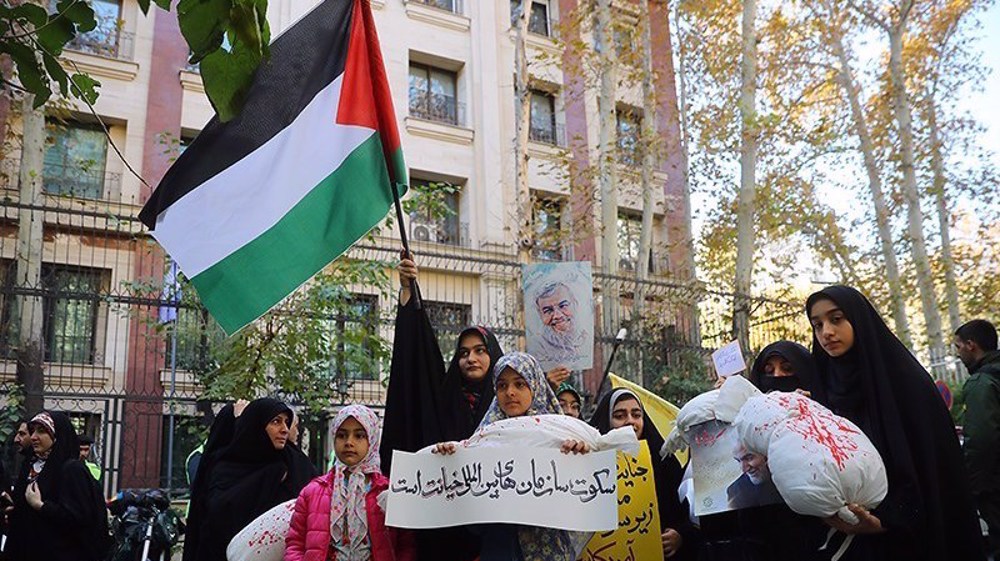
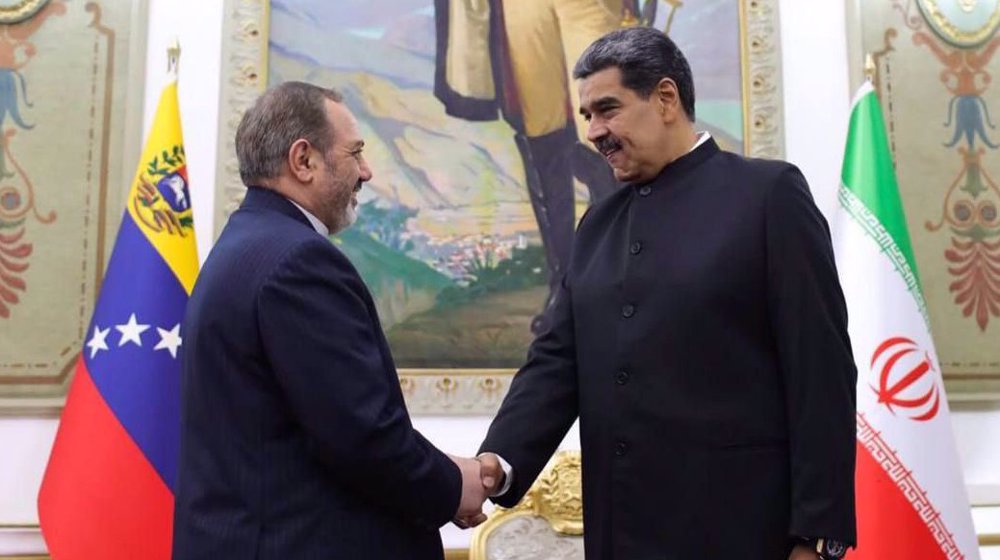
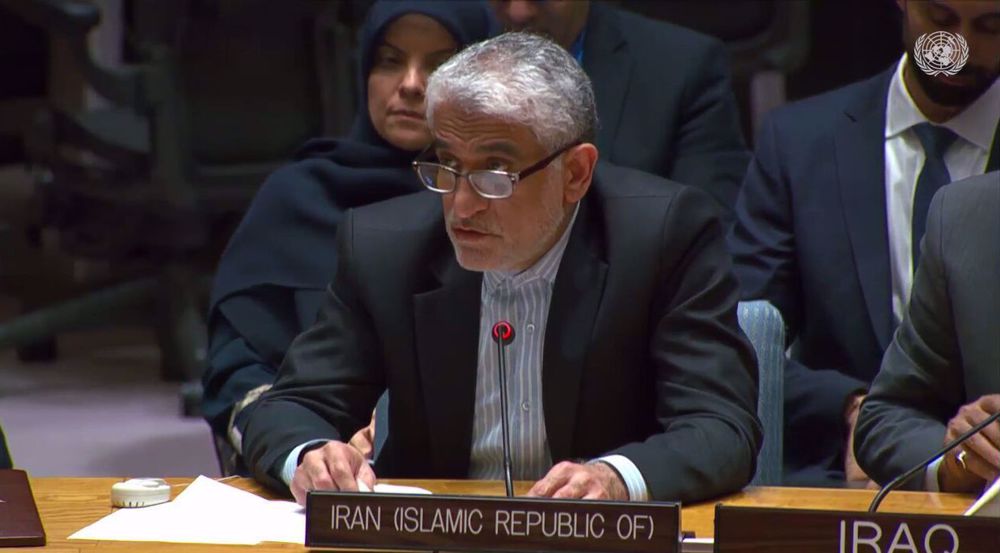



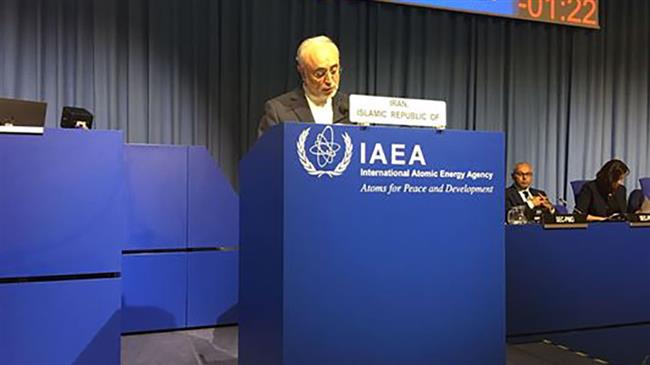
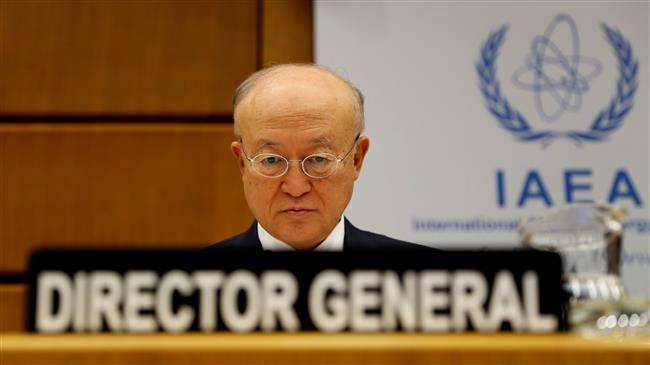


 This makes it easy to access the Press TV website
This makes it easy to access the Press TV website